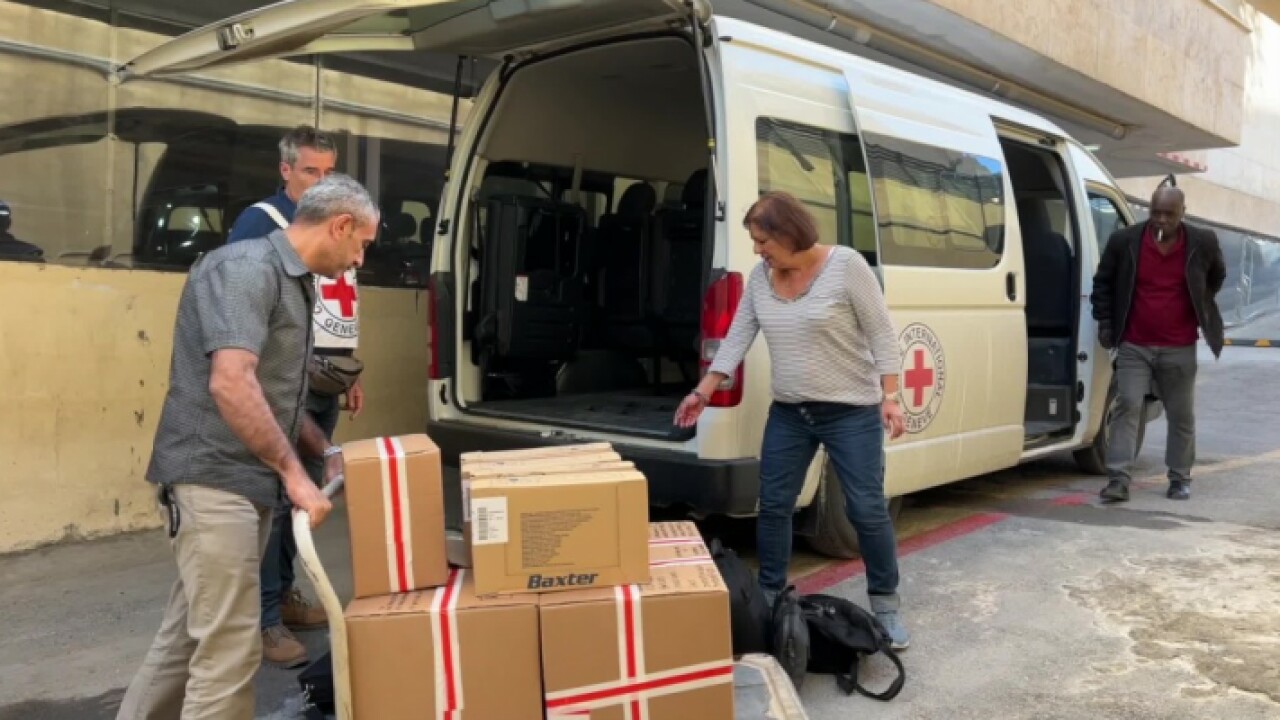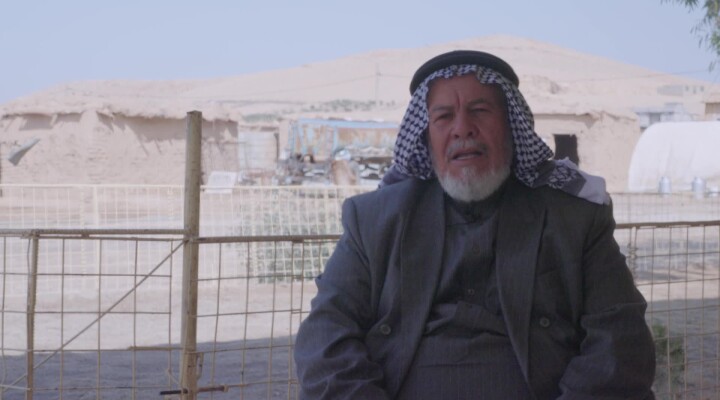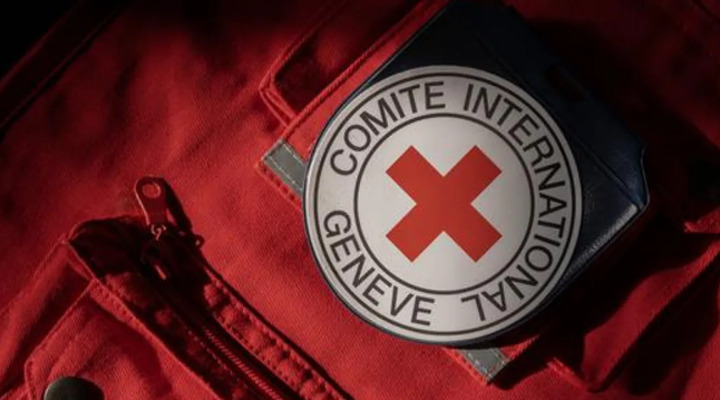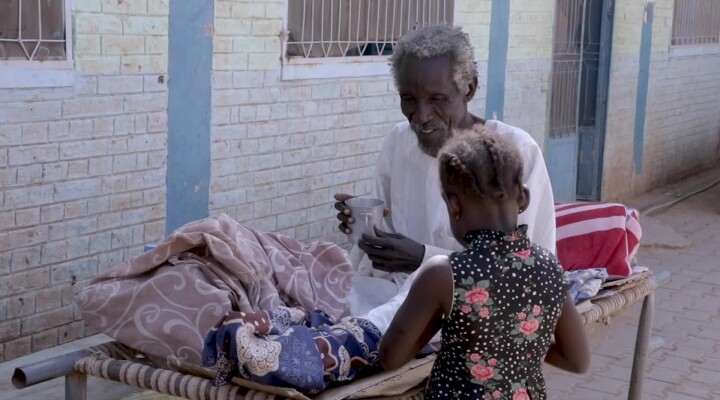Gaza: Surgical team, 60 tons of humanitarian aid and medical items mobilised but access urgently needed

This is a modal window.
A convoy carrying 60 tons of aid, including urgently needed medical items, from the International Committee of the Red Cross (ICRC) has been mobilised for Gaza, but safe humanitarian access is urgently needed to deliver them to civilians in need. A four-person surgical team including a chief surgeon, an orthopedic surgeon, an anesthetist, and a theatre nurse are on standby to support the overwhelmed hospitals in the Gaza Strip to cope with the influx of the wounded.
ICRC chief surgeon Tom Potokar says: “It’s critically important to deploy. We all know the situation is very bad. There are a huge number of wounded people, and a lot of displaced people and ICRC has a role in helping these people in their suffering. The situation this time is much more difficult. There are far bigger numbers in terms of the people injured. The humanitarian crisis that is unfolding is on a much bigger scale.”
The recent violence in Israel and the occupied Palestinian territory is at a level that the ICRC has not witnessed in many years. Thousands have lost their lives and many more are injured, missing, or displaced. The conflict has the potential to spiral further out of control, causing even more suffering to civilians on both sides. In Gaza, hospitals are on the brink of collapse, electricity is running out and people have little food or water. The level of humanitarian needs created by the violence requires sustained humanitarian relief.
Notes to editors:
The International Committee of the Red Cross (ICRC) is a neutral, impartial, and independent organization with an exclusively humanitarian mandate that stems from the Geneva Conventions of 1949. It helps people around the world affected by armed conflict and other violence, doing everything it can to protect their lives and dignity and to relieve their suffering, often alongside its Red Cross and Red Crescent partners
About the ICRC in Israel and the occupied territories:
In Israel and the occupied territories, the ICRC strives to make a difference in people's lives through its activities and programmes. We visit detainees, reunite families, support livelihood projects, and help improve access to essential services, like water and electricity. Above all, we stand up for people and promote their rights and dignity.
We have been present in Israel and the occupied territories since 1967 and work with the Palestine Red Crescent Society and Magen David Adom in Israel. The ICRC has offices in Tel Aviv, in the West Bank, including East-Jerusalem and Gaza.
For more information:
Chris Hanger, ICRC Geneva, changer@icrc.org , Tel: +41 79 731 04 03
SHOTLIST 2
Length: 05:40
Copyright: ICRC access all
On Screen Credit: ICRC
|
|
October 15, 2023 |
Amman/Jordan |
|
00:01 – 00:04
|
Picking the items from the warehouse shelves |
|
|
00:05 – 00:26 |
Moving items to get ready for packing |
|
|
00:27 – 00:32 |
Ihab Shaban – ICRC Amman - Communication manager talking to Mohammad Aqeel - Medical Warehouse Supervisor And checking the donation items list |
|
|
00:52 – 1:16 |
ICRC staff talking to the store keeper and discussing the shipment |
|
|
1:18 – 1:27 |
Picking items |
|
|
1:30 – 1:35 |
Moving items |
|
|
1:36 – 1:47 |
Weighting the items for the shipment |
|
|
1:48 – 2:06
|
Wrapping the medical supplies |
|
|
2:07 – 2:23 |
Staff at the warehouse supervising the process |
|
|
2:24 – 3:18 |
Loading items into the trucks |
|
|
3:48 – 4:30 |
Forklift moving items into the trucks |
|
|
4:32 – 4:49
4:49- 4:59
4:59- 5:04
5:04- 5:23
5:23- 5:34
5:34- 5:40 |
Interview with Ihab Shaban – Communication manager- ICRC Amman in English Today, we are at the Logistics Support Center at the International Committee of the Red Cross warehouses in Jordan. We are currently working on preparing and transfer around 60 tons of War Wounded Kits to treat those injured and affected by the armed violence currently taking place in Israel and the Occupied Territories.
Each of these kits contain surgical sutures, sterilization tools, and other medical tools that will help provide the necessary first aid to save life
This shipments are heading to Gaza Strip through Rafah.
Interview with Ihab Shaban – Communication manager- ICRC Amman in Arabic
احنا اليوم موجودين في مركز الدعم اللوجستي في مستودعات اللجنة الدولية للصليب الأحمر في الاردن عشان نجهّز و نشحن ٦٠ طن من الوحدات الطبية المتخصصة لمعالجة المصابين والمتضررين من العنف المسلّح الدائر حاليًا في إسرائيل والأراضي الفلسطينية المحتلة.
الوحدة الطبية الواحدة بتحتوي على معدات طبية وخيوط جراحية وأدوات تعقيم وغيرها من الأدوات اللي بتساعد على القيام بالإسعافات اللازمة لإنقاذ الأرواح بالمحصلة.
هذه الشاحنات المحملة الآن متجه إلى قطاع غزة من خلال معبر رفح براً.
|
|
Shotlist 1
Length: 05:28
Copyright: ICRC/lrcs access all
On Screen Credit: ICRC
|
|
16.10.2023 |
Amman/Jordan |
|
00:01 – 00: 09
|
ICRC vehicle ready to head to the airport |
|
|
00:11 – 00:21 |
Loading medical supplies to the icrc vehicle |
|
|
00:23 – 1:27 |
RDU team staff members |
|
|
1:28 - 05:28 |
Dr Tom Potokar Chief surgeon
We’re part of the ICRC’s Rapid Deployment Teams, preparing to move to Gaza, where surgical teams consisting of Me (Chief Surgeon), a Plastic Surgeon, Orthopedic Surgeon, Anesthetist and Theater Nurse.
Well, I think it’s critically important that we know the situation is very bad and there’s a huge medical need. There’s a lot of wounded people, displaced people, and the ICRC has a role to help these people in their suffering. From that point of view, I think it’s an extremely upsetting situation for a lot of people everywhere.
Yes, I’ve been to Gaza many times, I have many colleagues who I have worked with over the years in similar environments but Gaza is a place I know well.
Yes, I think it will be different this time, very different in fact. Previously, when has been deployment to Gaza, either it was with the ICRC or had it been with others. The situation (I think) this time is much much more difficult, that’s far bigger in terms of number of people injured, the whole humanitarian crisis that’s unfolding is on a much bigger scale we’ve seen before.
I feel, for me as I said I have many colleagues there but also there are so many people suffering across the world but at this moment there are a lot of people suffering in Gaza. And as a humanitarian, I feel it is our job to be with those people , to support them, to help them in their suffering, to bring practical assistance. So I feel privileged to be able to do that and there are people who are suffering far far more than I am. I have a choice, other people don’t have the choice. The main challenge is, I think they’re going to be huge challenges, one is, of course we will have to get into Gaza and that in itself is a challenge. There’s a lot of infrastructure that has been destroyed and obviously the lack of fuel, the lack of water, the lack of food is going to compend the situation. The difficulty of moving around to security but also, just the blockages from rubble etc .. and unexploded munitions so it will be huge huge challenges to try to help these people so I think that there’re going to be enormous challenges So our plan now what we are doing we are four of us what we call a small mobile surgical team as I said we’re two surgeons myself a a Plastic Surgeon and Orthopedic Surgeon colleagues , Anesthetist and Theater Nurse, we’re all have experienced with working for ICRC many times so our plan now is we’re on the way to the airport to go to cairo and then from cairo we hope to get to the boarder to gaza Egyptian boarder rafah hopefully as soon as possible these couple of days I hope and then of course its not up to us that its open or closed the boarder but as soon as were able to to go across that boarder to help our colleagues
|
|
Ends


